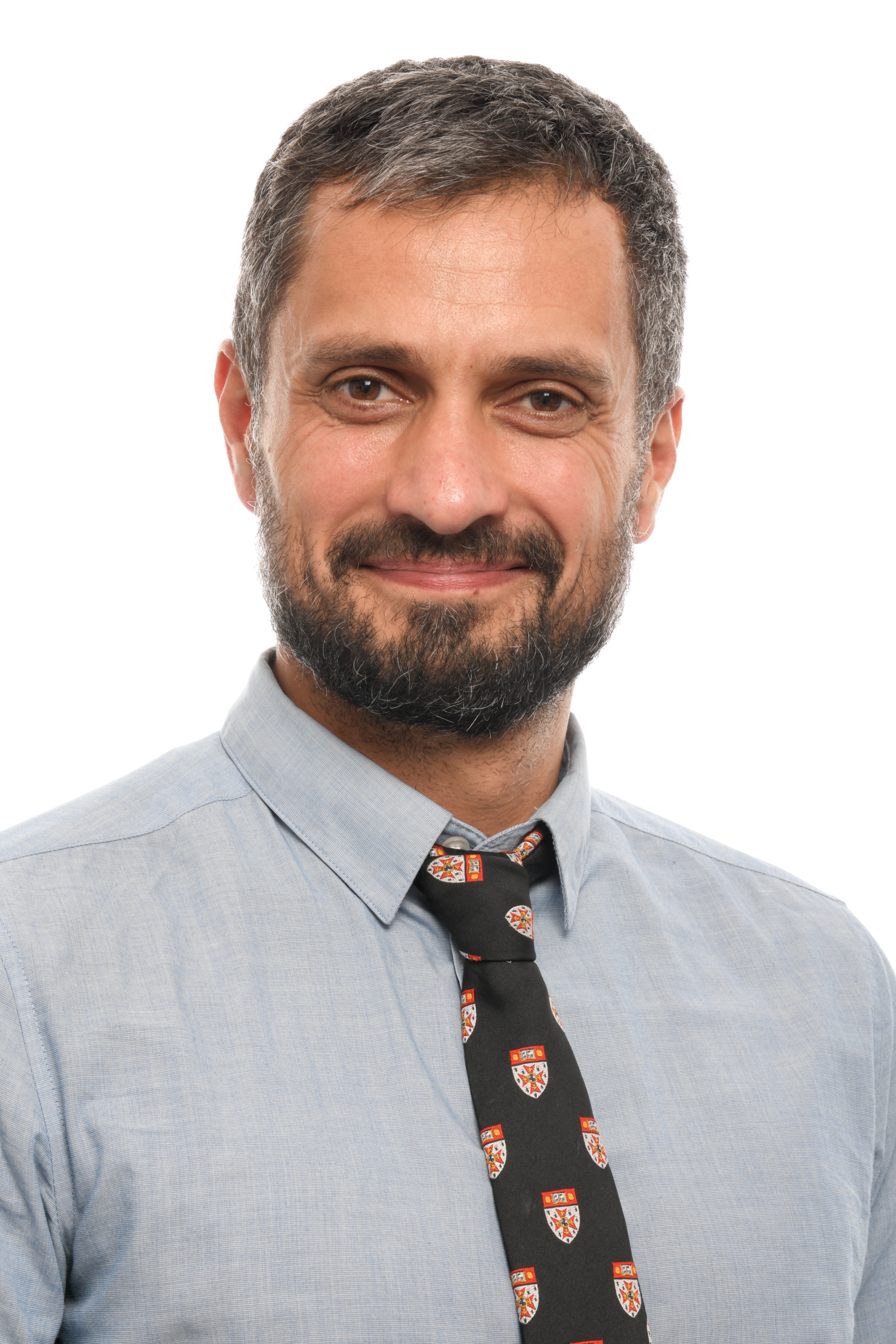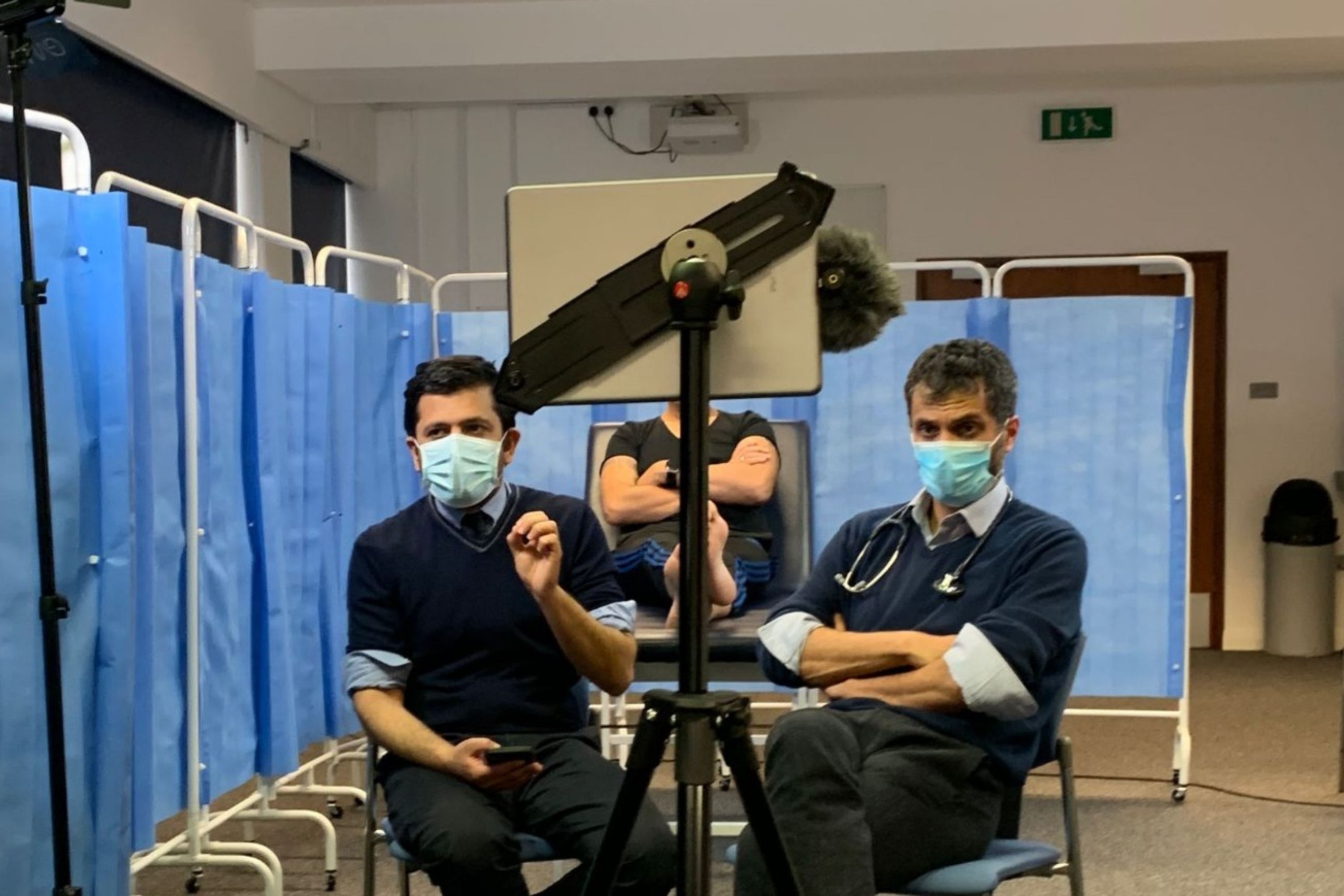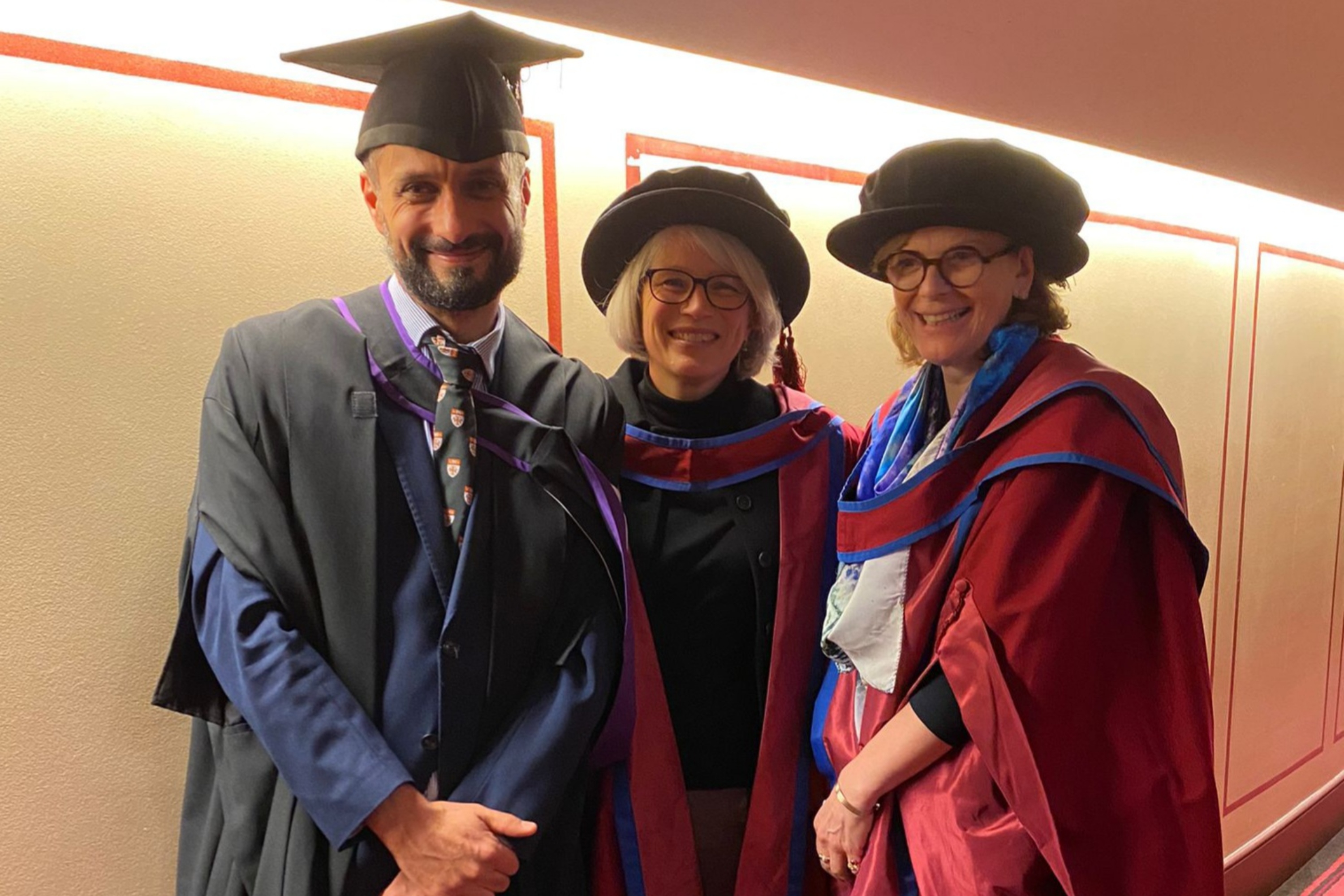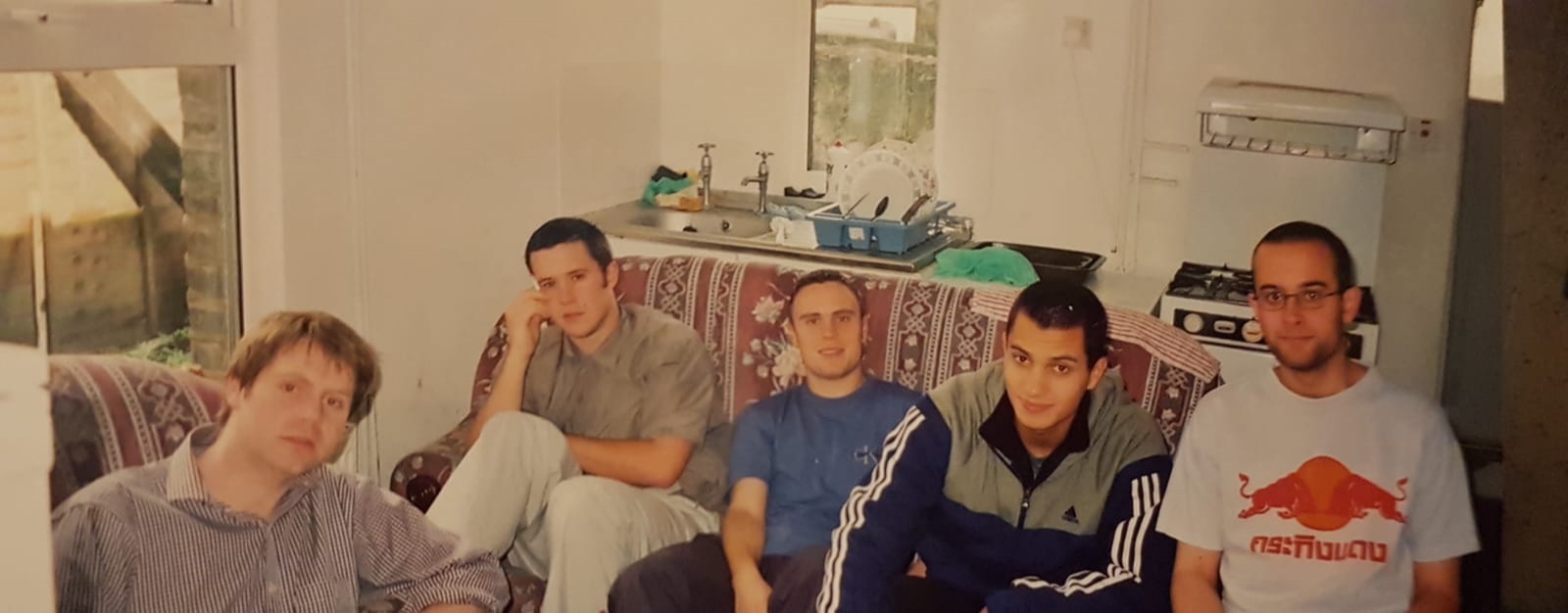
Despite coming from a medical family, Dr Omid Halse (MBBS Medicine 2002) nearly gave up on his ambition to go to medical school. Thanks to one encouraging teacher, he applied anyway.
Today, he’s one of the pioneers of stroke medicine and a vital member of the Imperial College Faculty of Medicine.
Medicine in the family
With a paediatrician father and an A&E nurse mother, medicine ran in Omid’s family. But when he was struggling academically at school in Newcastle, it seemed like most of his teachers thought medical school was a bit too ambitious. Except for Dr Barker, the English teacher. He told Omid to go for it, even offering to write the reference for the UCAS form.
Sailing through interview
Charing Cross and Westminster Medical School gave Omid a provisional offer - and it might have been partly down to a hilarious misunderstanding.
“They asked in the interview what I thought of the BSc, the intercalated degree. I thought they were taking about mad cow’s disease, so I said it’s a terrible condition. They all laughed! I laughed along pretending it was meant to be a joke, and I think I got away with it.”
Charing Cross and Westminster
Omid moved to the big city lights of London to start his degree (not the BSc!). He immediately fell in love with the family atmosphere and close-knit community at Charing Cross and Westminster Medical School, which became part of Imperial College Faculty of Medicine during his time as a student.
He was very involved in the football team, despite the initial rivalry when the schools merged. Besides some rotations outside of the capital during training, he’s been in London ever since.
Read more about the origins of Imperial's Faculty of Medicine here.
Choosing a specialism
Whilst working as a senior house officer in Hertfordshire, Omid was part of a team doing cutting-edge stroke therapy. In 2004, one of their patients underwent thrombolysis, which wasn’t an accepted treatment at the time, but had immediate results nonetheless. From that moment on, in his own words, Omid was “obsessed with being a stroke physician”.
“When I first got involved working in strokes all we had was aspirin and rehabilitation. When I was a junior doctor, the stroke patient was the last one seen on the ward round and could be on any bed in any ward in the hospital. Now we have cutting-edge hyperacute treatments like thrombolysis and thrombectomy, dramatically reducing outcomes of death or disability.”
His next step was training in geriatrics in the London deanery where he specialised in stroke medicine. Soon he ended up back at Charing Cross Hospital as a consultant working in a leading centre for stroke – but by this point, Omid was feeling burnt out.
It was a book that saved the day
“My dad bought me a book by Sir William Osler, Aequanimitas. There isn’t a lecture that goes by that I don’t quote Sir Osler. That book really grabbed me as it talked about learning - how we should learn. He was so influential on medical school training and it orientated me to finding out how I could get more pleasure out of being a consultant.”
After being inspired by Aequanimitas, Omid began teaching medical students on the ward. At that time, junior doctors apprenticed under a consultant in a group called a firm. At Charing Cross there wasn’t a firm in stroke medicine, but Professor Amir Sam soon asked Omid if he’d like to hold that responsibility.
“I remember fondly so many situations like having a lecture in the Brian Drewe lecture theatre. When I became part of the teaching faculty, doing a lecture there was an amazing experience. I got quite nostalgic – and still do.”
From there, Omid began to take on more and more responsibility for training students, combining his passion for stroke medicine with his love of passing on knowledge to new generations of doctors.
He became Director of Clinical Studies at Charing Cross, then Head of MBBS Year 3 at Imperial College School of Medicine. Today he is Director of Phase 3 (Years 5 and 6) of the MBBS programme.

Celebrating 25 years of history
One of Omid’s latest responsibilities is co-chairing the jubilee celebrations for the Faculty of Medicine.
He explains, “it’s nostalgic for me as my time at Imperial fits that 25 year window. It reminds me of my age! But, more importantly it lets me find out about parts of the school I didn’t know about. One of the real pleasures has been celebrating not only the faculty, but its people.”

As part of the jubilee celebrations, Omid is reflecting on what the school might look like for future generations. In the next 25 years, he sees collaboration between students and the faculty staying as strong as ever and hopes there will always be that family ethos. He also sees the school supporting students outside of London – the new joint medical school in Carlisle with the University of Cumbria is the first step in this.
“There will be challenges, but over the past 25 years we’ve taken them on and have made meaningful and positive progress. I think we’ll still be doing that in 25 years’ time, only more on a national and international level.”
A final thought
Having almost given up on his dream to be a doctor, Omid has some sound advice to pass on to anyone thinking of doing a medical degree:
“Obviously it’s good to listen to advice but don’t forget to believe in yourself. There will always be someone out there to support you. For me it was an English teacher. My science teacher didn’t believe in me, but the English teacher told me to go for it.
At Imperial, you’ll be coming to a school that will always support you and that you’ll never forget. And hopefully a school that you’ll think fondly of and engage with when you leave.”

Your dreams are possible:
"There will always be someone out there to support you. For me it was an English teacher. My science teacher didn’t believe in me, but the English teacher told me to go for it."